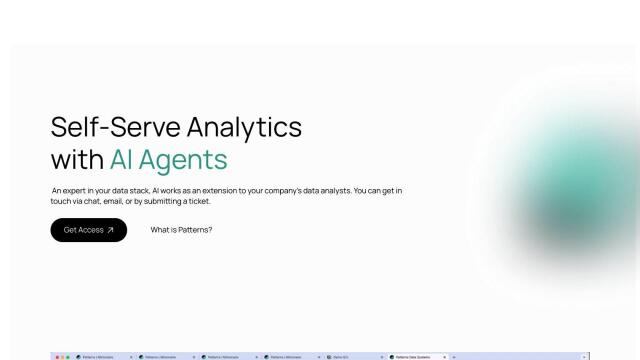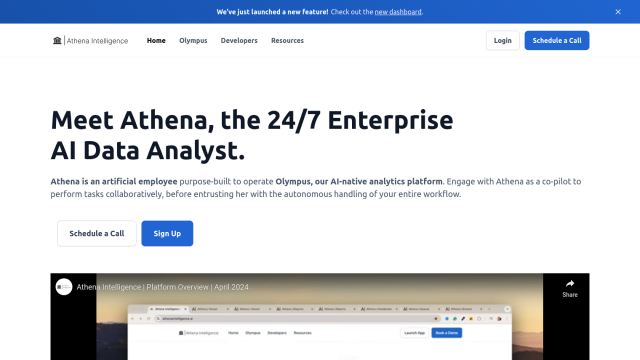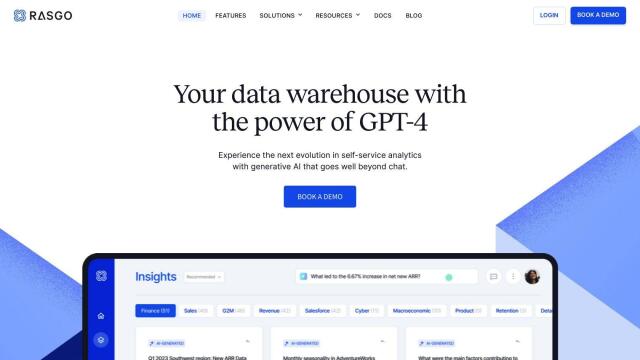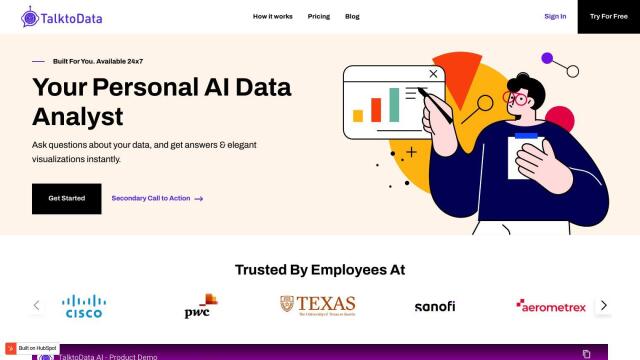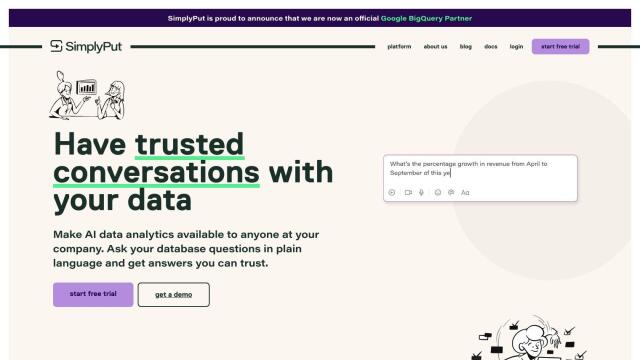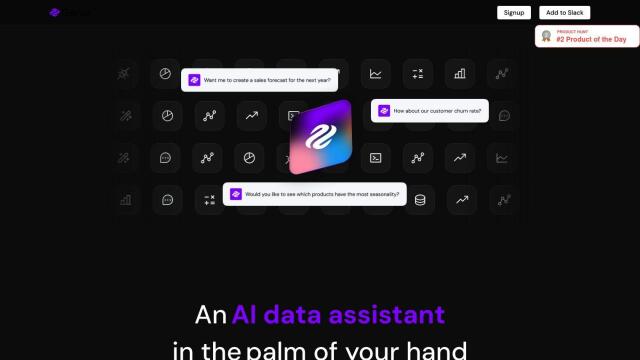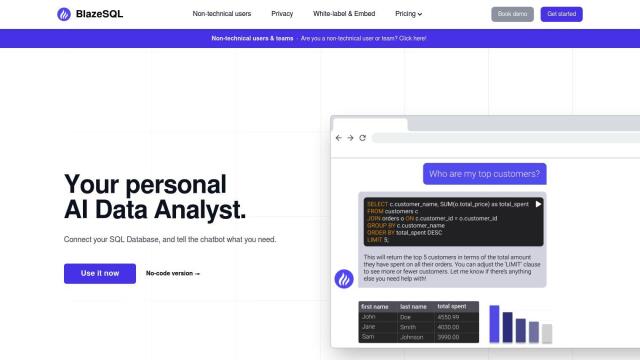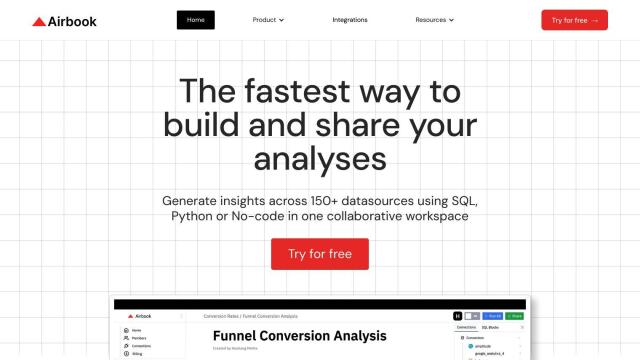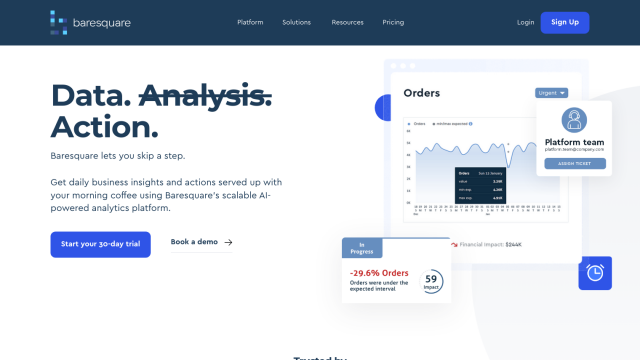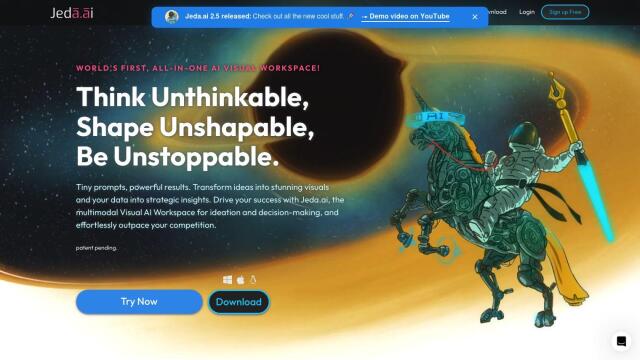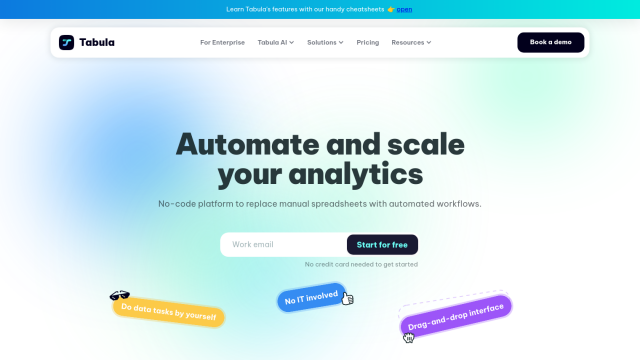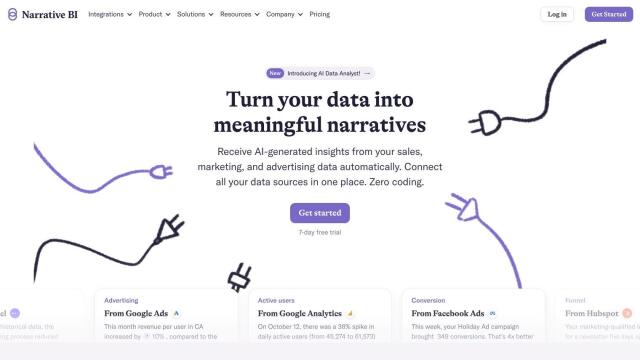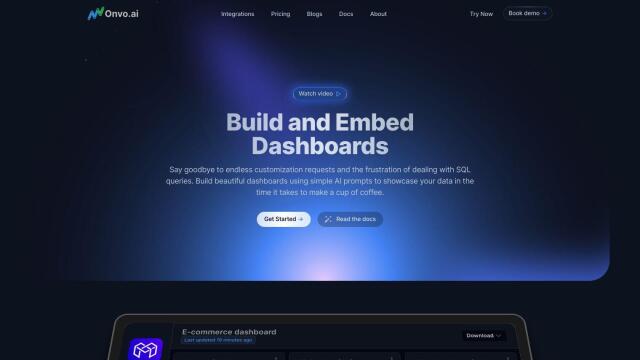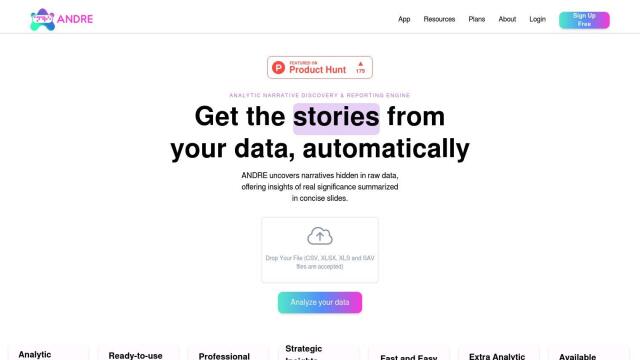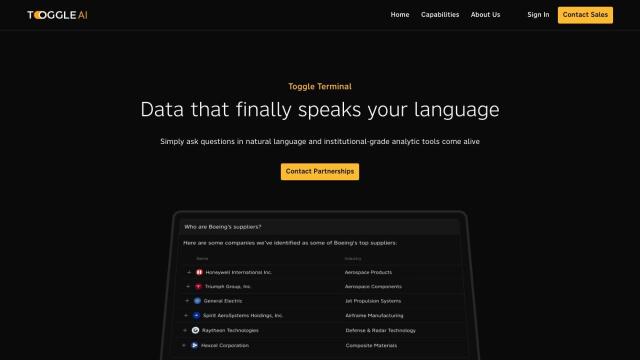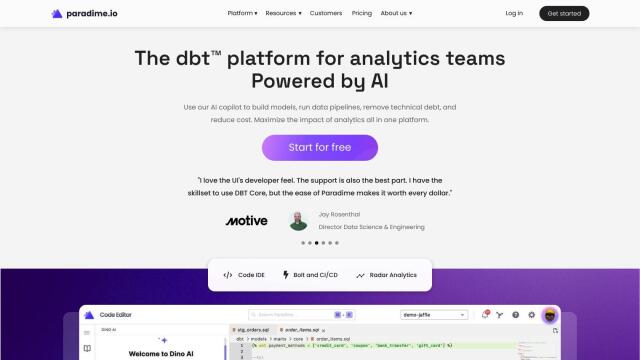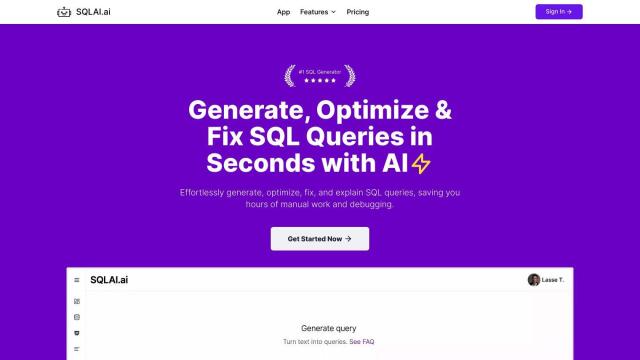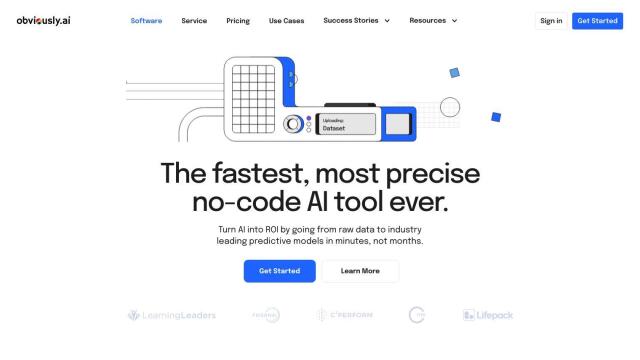Question: Is there a tool that can help me uncover hidden trends and patterns in my complex data sets?

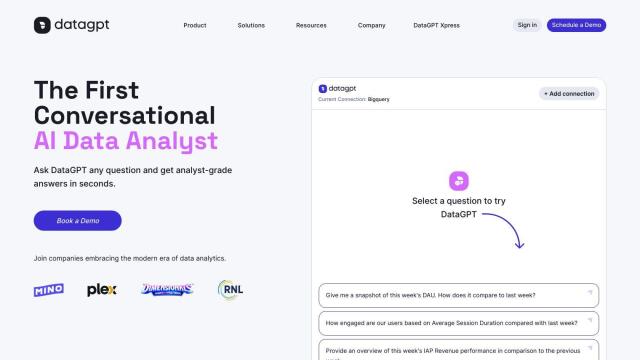
DataGPT
If you need a tool to spot trends and patterns in complex data, DataGPT could be a good fit. This conversational AI data analyst lets you ask questions and get analyst-level answers in seconds, so it's good for tasks like maximizing growth metrics, checking for segments, flagging anomalies and comparing results. With automated insights and integration with tools like Google Analytics, DataGPT can help you make decisions based on data instead of gut instinct.
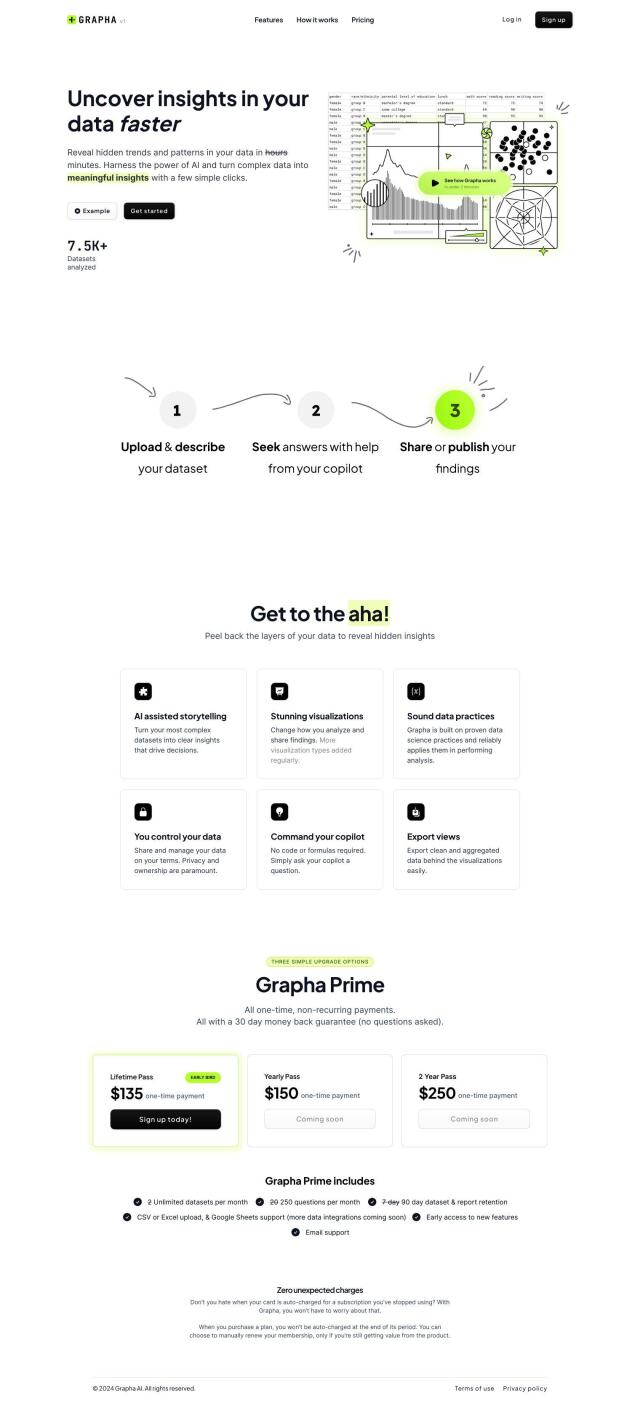
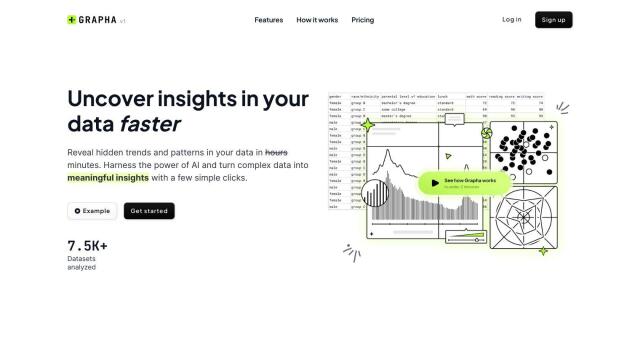
Grapha.ai
Another option is Grapha.ai, an AI-powered data exploration tool geared for people who aren't techies. Grapha.ai offers AI-boosted storytelling, multiple visualization options and a focus on best practices for data, which means you don't have to write code or formulas to get insights. It also can import data from CSV or Excel files, integrate with Google Sheets and offer flexible pricing with a 30-day money-back guarantee, so it's a good option for data wrangling and sharing.

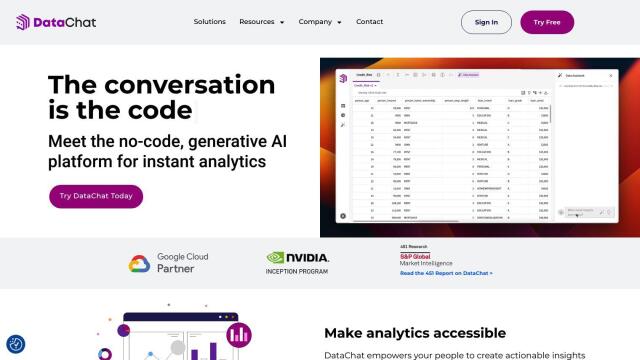
DataChat
For a no-code approach, DataChat is a generative AI platform that lets you turn complex data into actionable information without needing to be a data scientist. With a combination of spreadsheet and chat interface, DataChat automates data prep, exploration and modeling work while offering predictive analytics and AI-generated answers. Its 14-day free trial and pay-as-you-need pricing means it's an option for businesses with varying needs.

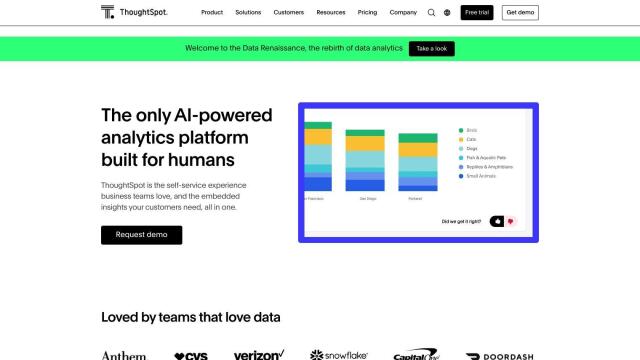
ThoughtSpot
Last, ThoughtSpot is an AI-powered analytics tool that lets you ask complex data questions in plain English and get detailed answers and insights. The self-service tool supports natural language queries, visualization and drill-down analysis, so it's good for a wide range of industries. With its focus on making analytics easy to use and accessible, ThoughtSpot can help you explore, analyze and share insights in your data.

